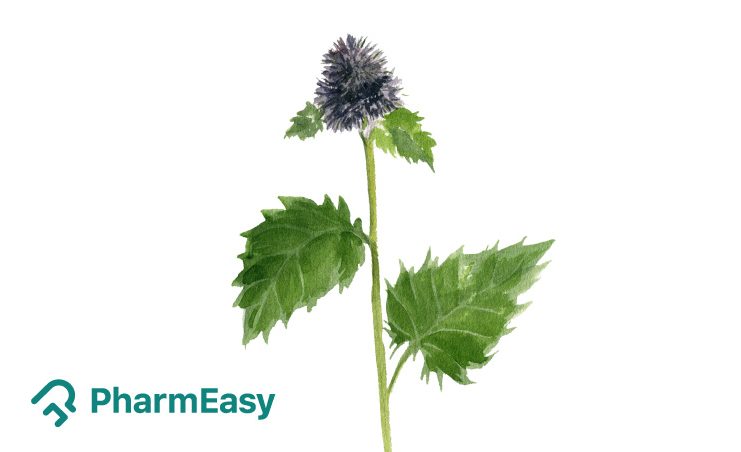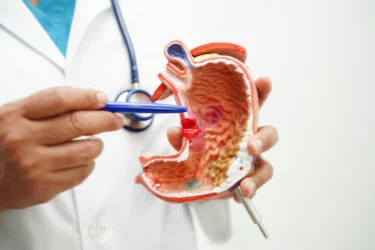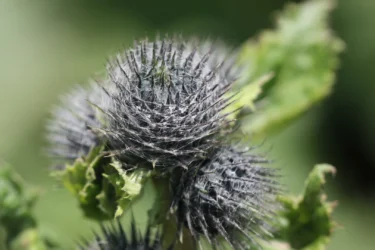Kuth (Saussurea lappa): Uses, Benefits and Side Effects by Dr. Smita Barode
By Dr Smita Barode +2 more

Get,

to manage your symptom
Get your,


4 Cr+ families
benefitted

OTP sent to 9988776655



You’ve successfully subscribed to receive
doctor-approved tips on
Whatsapp

Get ready to feel your best.

Hi There,
Download the PharmEasy App now!!


Register to Avail the Offer
Send OTPBy continuing, you agree with our Privacy Policy and Terms and Conditions

Hi There,
Sign up on PharmEasy now!!
Trusted by 4 crore+ families

OTP sent to 9988776655



You have unlocked 25% off on medicines




Code: NU25
By Dr Smita Barode +2 more
Table of Contents
Plants have been used in various indigenous systems of medicine for ages. Literature survey has revealed potent biological activities of several plants, which are proven through many animal and human studies.
Kuth is one such indigenous plant found on the Indo Pakistan border and Jammu and Kashmir, the Himalayan range of Uttarakhand and Himachal Pradesh and the Western Ghats. It grows wildly in China and Pakistan as well. The botanical name of the kuth plant is Saussurea lappa, also known as S.costus, belonging to the family Asteraceae and is often referred to as costus. It is a perennial herb with purple flowers having a fluffy and feathery appearance. The fruit of kuth is curved, hairy and greyish1,2.

Different parts of costus or kuth have been widely used in Ayurveda and Unani forms of medicine since ancient times. The roots are used in relieving fever, cough and stomach ache, while a paste with mustard oil provides relief from pain in the joints, especially during winter. The several traditional uses of kuth promise its great demand in the pharmaceutical industry. Unfortunately, kuth is on the verge of extinction and has been listed in the Red Data Book of Indian Plants3.
The bioactive compounds present in kuth are:
Other bioactive compounds include flavonoids, glycosides, steroids, lignans and triterpenes2.
According to several studies, women who inhale Kuth oil while in labour may experience fewer sensations of discomfort. In my experience, the medication is believed to ease anxiety, trepidation, and associated symptoms. Its use leads to the need for minimal anaesthesia with reduced negative effects on the mother and the foetus.
Dr. Smita Barode, B.A.M.S, M.S.

Anti ulcer activity of kuth has been discussed by various researchers over a period. Zahara et al., 2019 in their review, discussed the potential of S.lappa. They mentioned that the administration of kuth root extract reduces the acidic secretion in the stomach and increases the movement of food from the stomach to the small intestine (gastric emptying), which results in a noteworthy improvement in ulcers. The herbal formulation UL 409 (mentioned by Madhuri et al., 2012 and Rathore et al., 2020) possesses anti ulcer activity in the stomach and also contains S.lappa or kuth as a major ingredient. All this research suggests that kuth may have the potential as an anti ulcer agent, yet more data is required to establish its true extent in human health1,2,6.

The dehydrocostus lactone, a bioactive compound present in the roots of kuth, has demonstrated anti-cancerous activity in various types of cancer. This includes cancerous growth in the regions of the lungs, liver, gastric route, oral route, colon, ovaries, intestines and prostate glands. Rathore et al., 2020 revealed that the anti-cancerous activity of kuth is due to its potential to stop the growth of cancer cells during the cell multiplication cycle. Madhuri et al. 2012 mention a study performed to evaluate the benefit of kuth extract against gastric cancer. During this study2,6 it was found that the extract of kuth, along with chemotherapy, reduced the growth of the cancerous cells. These results indicate that kuth may have potential as an anti-cancer agent, but more clinical data is required to validate its role in humans.

The chemical constituents of Kuth, like flavonoids, glycosides, lactones, etc., have beneficial properties that improve the contraction of heart muscles. Rathore et al. in 2020 showed in a study2 the potential of kuth in a rabbit heart. They measured the changes in the heart rate, contractions and pericardial fluid (fluid in the space around the heart) of a rabbit’s heart after the administration of kuth. The positive results reveal that the property of kuth is similar to that of cardiac protective agents that decrease the risk of heart related diseases. These findings suggest that kuth may have the potential for heart disease. More research needs to be undertaken in the future to have sufficient data on the protective activity of kuth on the heart.

S.lappa or kuth is often prescribed in Korean prescriptions for relieving inflammatory diseases. Zahara et al., 2019 revealed that kuth extract administered in animal models showed anti-inflammatory properties for acute and chronic inflammation. Rathore et al., 2020 also demonstrated that lactones present in the kuth root also showed positive results at different stages of inflammation. The dose of 200mg/kg of kuth root extract showed considerable anti-inflammatory activity when compared with standard drugs like indomethacin. Amara et al., 2017 mentioned that kuth may help in reducing the inflammation related to rheumatoid arthritis, asthma, gastritis and bronchitis. All the above results suggested that kuth may have potential as an anti-inflammatory agent, but further studies are required to validate its role in human health1,2,5.

Zahara et al., 2019 in their review article, described that the extract of kuth root has shown its potential in managing epilepsy and convulsions when administered at a dose of 100 to 300 mg/Kg. It was observed that the administration of kuth roots increased the time difference between the two seizures subsequently. It may be because of the presence of the alkaloids, essential oil and 4-hydroxybenzaldehyde (an approved anti-epileptic agent) in kuth root that benefitted in the initiation and occurrence of seizures. These findings were supported by various researchers on different animal models, suggesting that kuth may have some potential in epilepsy and convulsions. Further clinical research is necessary to establish the true extent of the benefits of kuth on human health1,2.

Though studies show the benefits of Kuth in various conditions, these are insufficient and there is a need for further studies to establish the true extent of the benefits of Kuth on human health.
From my knowledge, bad breath, dental caries, and gum disease are among the oral disorders for which Kuth may have great benefits. Streptococcus mutans, the bacteria causing tooth decay,may be less capable of causing caries if Kuth is consumed.
Dr. Rajeev Singh, BAMS
Various parts of kuth are used in different industries. Some of the uses are:
One should always consult an Ayurvedic physician before consuming kuth in large quantities or for therapeutic benefits. They will be the best person to prescribe you the correct form and dosage as per your health condition.
When a thorough investigation and clinical study on powerful hypoglycaemic plants from various locations of India were conducted to identify antidiabetic herbs utilised in Indian folklore and by various tribes, Kuth was discovered to be the most beneficial for diabetes. I recommend that people living with diabetes consume Kuth with a consultation from their doctor.
Dr. Siddharth Gupta, B.A.M.S, M.D (Ayu)
Kuth, being a medicinal plant, does not cause any harmful effects. Though, there are still some side effects, which include:
Despite being a safe medicinal herb, it should always be used in moderation.
Also Read: Turkey Berry (Solanum Torvum): Uses, Benefits and Side Effects by Dr. Rajeev Singh
Since there is no sufficient data available on the interaction of kuth with other drugs, further research is required for the same. One must consult the doctor if he or she is on allopathic medication before consuming kuth to avoid drug interactions.
Kuth is an indigenous medicinal plant with grey fruit and purple, fluffy feathers. It belongs to the family Asteraceae, commonly known as costus.
The kuth root has potential benefits in heart and liver diseases. It may also benefit in relieving epilepsy and convulsion along with anti-cancer, anti-inflammatory and anti-ulcer activities.
Yes, kuth/costus is a traditional plant used in Ayurvedic and Unani systems of medicine, which may help with cough, cold and fever. It has been used as a tonic and stimulant for the brain and liver.
Kuth plant is prohibited in people suffering from skin allergies, especially the perfumes and oils that form kuth roots. Elders, children and pregnant and lactating females should consult a doctor before consuming kuth.
Kuth has been used as a fragrant oil, fuel, fodder for cattle and insecticide for crops. It is also used as a hair dye and hair wash to bring lustre to hair. The medicinal use of kuth roots is to prepare local formulations to manage various pain and diseases.
Disclaimer: The information provided here is for educational/awareness purposes only and is not intended to be a substitute for medical treatment by a healthcare professional and should not be relied upon to diagnose or treat any medical condition. The reader should consult a registered medical practitioner to determine the appropriateness of the information and before consuming any medication. PharmEasy does not provide any guarantee or warranty (express or implied) regarding the accuracy, adequacy, completeness, legality, reliability or usefulness of the information; and disclaims any liability arising thereof.
Links and product recommendations in the information provided here are advertisements of third-party products available on the website. PharmEasy does not make any representation on the accuracy or suitability of such products/services. Advertisements do not influence the editorial decisions or content. The information in this blog is subject to change without notice. The authors and administrators reserve the right to modify, add, or remove content without notification. It is your responsibility to review this disclaimer regularly for any change
Comments

Leave your comment...
You may also like
Comments